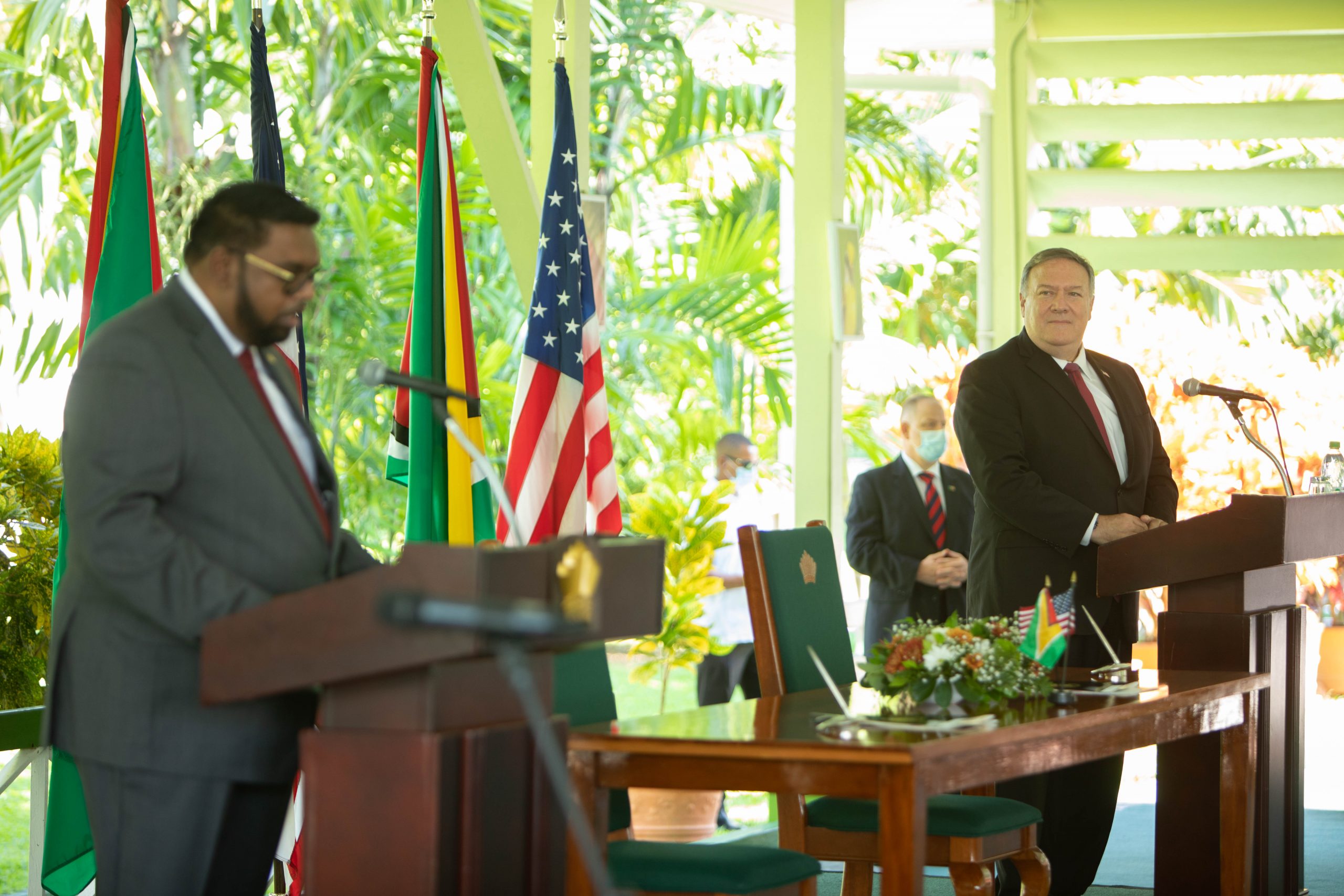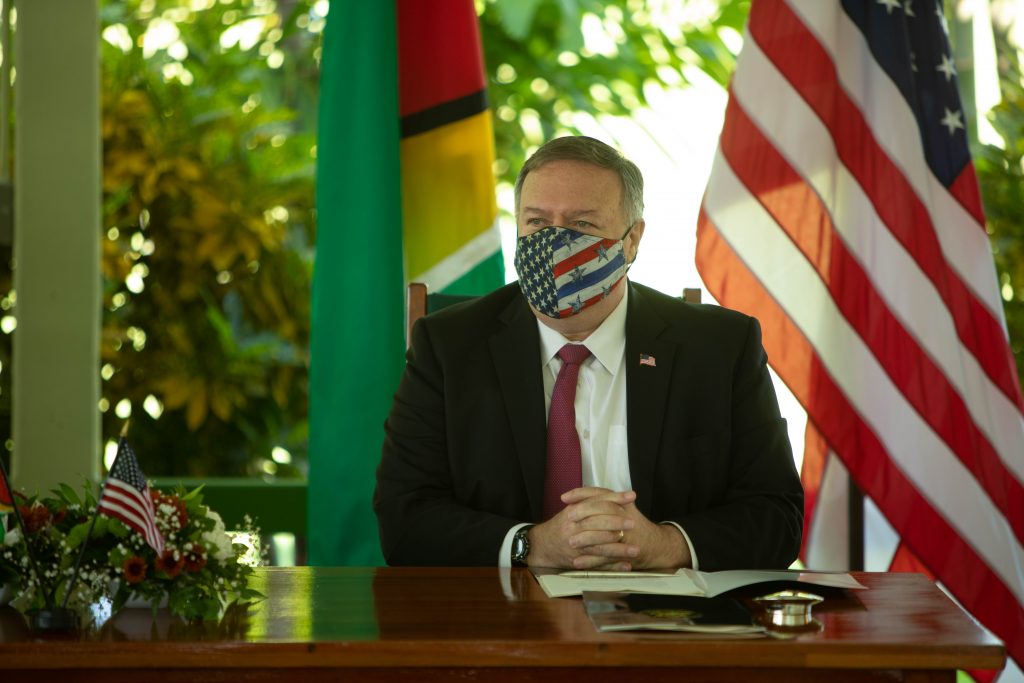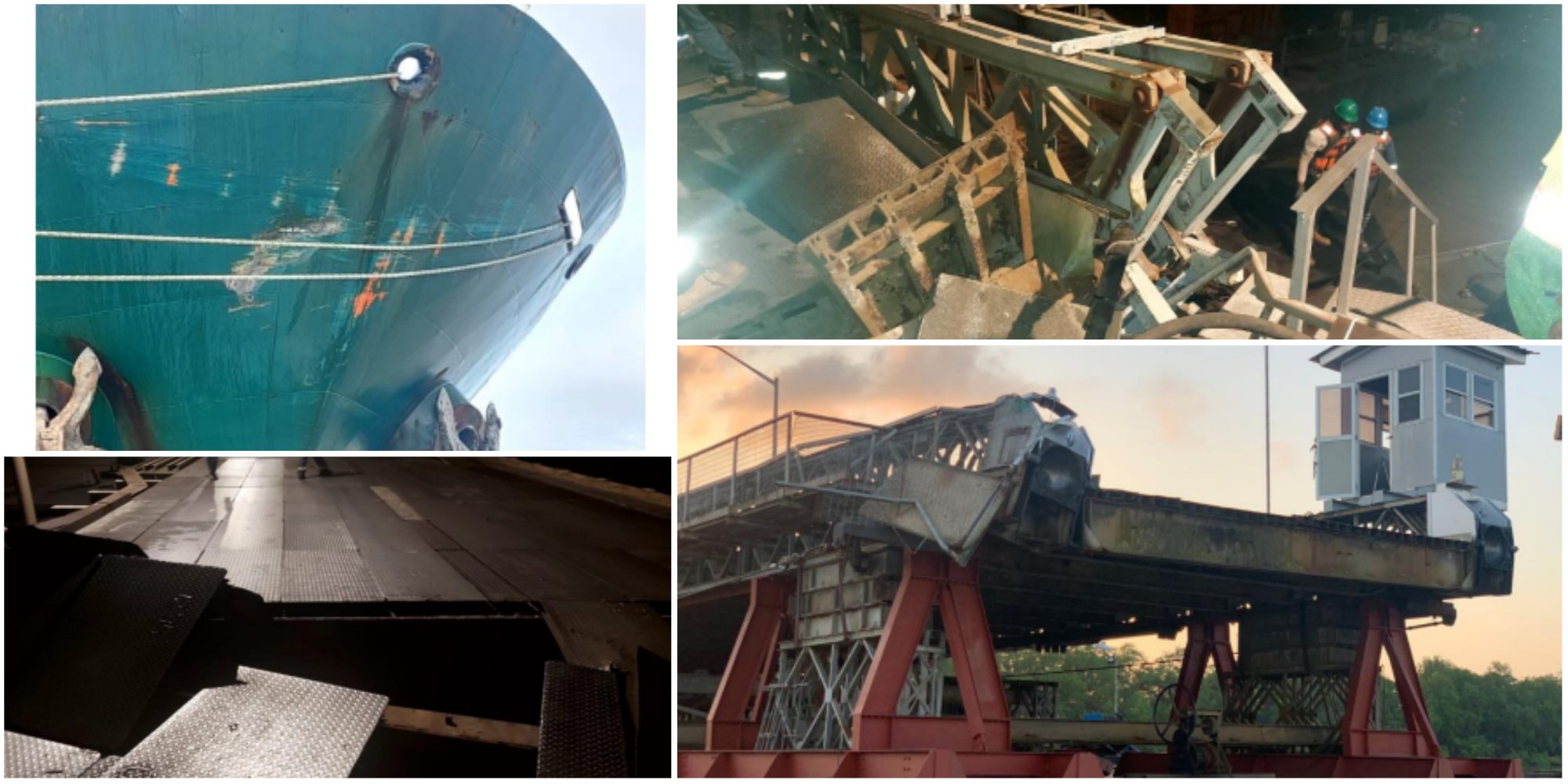
President Irfaan Ali has said that the new Shiprider Agreement which was signed between Guyana and the United States on Friday and intends to allow for maritime patrols to combat narco-trafficking will also see Guyana’s Exclusive Economic Zone (EEZ) benefiting from heightened security.
This comes at a time when drilling is currently ongoing in the Stabroek Block with a total of 18 oil discoveries already made by U.S oil giant ExxonMobil but also in the face of unrelenting claims to parts of that maritime space by neighbouring Venezuela.
President Ali said that the improved security of Guyana’s Exclusive Economic Zone, where large scale fishing activities are also ongoing, will not only be in the form of maritime patrols.
He said during discussions with the U.S Secretary of State Mike Pompeo who is currently in Guyana on an official visit, he asked for radar coverage of Guyana’s EEZ.
“We welcome any help that would enhance our security and our ability to protect our borders and most importantly enhance our capability to ensure that we go after criminal elements and this allows us to do that,” Mr Ali said.
During a joint press conference at State House on Friday morning with Secretary Pompeo, the President said this assistance with protecting the EEZ is crucial at this time even as he recalled various difficulties in the past.

Guyana had argued that the vessel was intercepted in the Exclusive Economic Zone and continental shelf of Guyana.
This new agreement, Mr Ali said, will guard against the recurrence of such acts.
He was supported in his stance by Secretary Pompeo who said that the United States continues to support Guyana’s claim to the Essequibo Region which Venezuela has laid claims to.
Pompeo said Guyana will be in a better position to understand what is happening on its borders and in its Exclusive Economic Zone through this new agreement.
“These are all things that give Guyana sovereignty. The capacity to control your space,” Pompeo added.
It was noted that operations will not be carried out in Guyana’s waters unless permission is granted by Guyanese authorities.
Pompeo clarified that the new security agreement to combat narcotic trafficking will come into effect by next Monday.
This joins recent donations of US$200,000 in equipment and interceptor boat parts to strengthen Guyana’s ability to patrol its territorial waters.
The Department of State has helped to train Guyana’s Port Control Unit to deter the trafficking of cocaine and other illicit goods through Guyana.
The United States Coast Guard provides training and mentoring to the Maritime Administration Department (MARAD) in order to improve port security.
Additionally, the United States military provides training of Guyana Defense Forces personnel every year, which includes a current student at the U.S. Coast Guard Academy.







